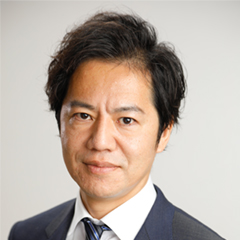Nuclear power issues have focused only on safety
The Fukushima Daiichi Nuclear Power Plant accident in 2011 was extremely serious, and the victims have been struggling ever since.
This accident has also triggered many citizens to take an interest in nuclear power.
There was a general trend of the whole of society being indifferent to nuclear power and turning a blind eye to the issue before the accident. In that sense, it is significant that many people have come to think about nuclear power.
But now that the impact of the accident is too strong, our discussions have aggressively sought only for safety.
Knowing the accident tragedy, it is natural to emphasize safety emotionally, and there is nothing wrong with sharing it. However, such feelings may easily lead to an awareness that it would be okay as long as nuclear power is used in a safe manner.
There are various issues on nuclear power, such as workers exposed to radiation at nuclear power plants, discriminatory structure between rural areas that bear the risk of nuclear power and urban areas that merely consume the electricity, the economic framework of overly relying on subsidies, and intergenerational unfairness of leaving nuclear waste disposal to the next generation. These are problems that increase the safer nuclear power plants are operated, but few people realize the contradiction.
If we emotionally insist only on safety, our thoughts will stop and we may have something to miss, which we should remind ourselves of again.
Recently, I have conducted a quantitative analysis by text-mining on the council minutes of the Sixth Strategic Energy Plan, public comments, and completed reports.
In the council minutes, I found that the terms related to nuclear power were half the number of those related to renewable energy. The terms related to the Fukushima Daiichi Nuclear Power Plant accident were one twentieth the number of those related to nuclear power generation, and one thirtieth of those related to renewable energy.
Conversely, in the public comments, the terms relating to the Fukushima Daiichi Nuclear Power accident and the nuclear fuel cycle are used seven or eight times more often than those in the council minutes.
This means that while the council discusses spreading renewable energy without getting into the essential problems of nuclear power as if concealing their attitude, the general public does not forget nuclear power problems, including accidents and radioactive waste.
The council members bear various individual responsibilities in areas such as industry and viewpoints. It would be natural for them to speak from that perspective. And so it is for the general public.
However, this deliberative process ends with experts and citizens just saying what they claim, not leading to a calm and constructive dialogue by people with diverse values.
Despite the multifaceted opinions that have been gathered, there have been no efforts to discuss the issues calmly and scientifically from a public perspective since 2011, causing social turmoil.
Reasons for 11 nuclear power plants decommissioned
I am personally negative about nuclear power generation. However, I am a committee member of the Nuclear Regulation Authority, a government agency, and a review team member. It is often regarded that the Nuclear Regulation Authority establishes the conditions required for restarting nuclear power plants. Certainly, there is no argument against nuclear power in the Authority.
I may seem inconsistent.
Actually, the Nuclear Regulation Authority sets very strict standards for restarting nuclear power plants. As of February 2022, 10 reactors restarted, while 11 were decommissioned after giving up on trying to meet the standards.
Instead of emotionally appealing against nuclear power, the Authority calmly and scientifically figured out the conditions and countermeasures for restarting reactors and announced them to nuclear power plants. Probably, Electric utilities operating nuclear power analyzed the costs required to meet these conditions and the benefits, and then they determined that it would be unprofitable, leading to decommissioning of the plants.
Of course, this is not the best way to go about it. To those who are unconditionally opposed to nuclear power, it may seem like a sluggish process. Some of the nuclear power plants cleared the conditions and restarted.
Nuclear power promoters also have their own opinions. Sharing each other’s opinions to find common ground may be one of the ways to debate the pros and cons of nuclear power.
But rather than that, what concerns me during this process is that their judgment for decommissioning depends on economic profitability.
The power companies chose to decommission the reactors not because they realized the limits of their technical expertise in Japan, where the risk of natural disasters is great, nor because they realized the weight of their responsibility for the lives of citizens.
If nuclear power plants are necessary, there must have been another option to restart them after taking safety measures no matter how much it would cost. However, in the end, the decommissioning was decided only on the basis of economic profitability rather than human lives.
As for another example, Germany has adopted the policy of major energy conversion, emphasizing the ethical aspects. It is not only a shift to renewable energy, but also denying nuclear energy even though they find it difficult to do so.
I wonder how Japan is promoting nuclear power by putting more importance on the economy than human lives. I am trying to visualize this issue scientifically through cost-benefit analysis, a quantitative method of analysis.
Importance of constructive discussions
Energy policy is often discussed in conjunction with climate change measures. Thus, renewable energy suitable for such measures tends to be accepted unconditionally. But this may be emotional and shallow thinking.
It is becoming clearer that solar power or wind power generation places a burden on community residents and the environment. Rare metals and semiconductors used for solar panels are becoming an international political tool, and what is being done in the metal mining sites is also emerging as an issue.
In order to understand such situations and think about them deeply, it is necessary for people with various ideas and information to discuss the matters with each other. Not getting emotionally offensive or denying humanity just because their opinions differ from yours but listening to different opinions respectfully is important.
Even those with different opinions probably would also like to improve the earth’s environment and their own lives as you think. Little by little, there must be things we can agree on. That is why we must talk together with respect.
Even so, we may not get answers easily. Although it will take a long time, we may not get the right answer that everyone is satisfied with.
But what is essential is that we aim for right answers together and take steps to be convinced by each of the answers.
Compared to Westerners, the Japanese seem to lack these basic ideas for discussions and debates. The Japanese may want answers quickly or can be described as easily warmed up but just as easily cooled down. However, we must be good at learning from others humbly.
This year, the EU decided to promote investment in nuclear power as a clean energy source.
It was reported in Japan that the EU moved in the direction of nuclear power promotion. However, after examining the report properly, it was found that very strict regulations are set up on nuclear power projects. In other words, investment is promoted to pay for the regulations.
Among EU members, France is for this policy, while Germany is against it. I think they will have more constructive discussions from now on.
We must remember that this can also happen to us. We need to keep an interest in this matter and continue to obtain correct information, so that we could learn a lot from the EU discussions.
I believe that thinking about energy issues now leads to considering what kind of society we should aim for in the future.
Choosing nuclear power generation is one way to reduce CO2 emissions. However, it can also create an irresponsible social structure, which includes leaving radioactive waste issues with no solution to the next generation, encouraging discrimination and disparities between rural and urban areas as mentioned above, and leaving the decision and responsibility for the plants use to others owing to technical difficulties.
If this is the case, our choice of nuclear power can be no different from creating a discriminatory and unequal society or an undemocratic society that does not inform the public of important information.
There are many ways to reduce CO2 emissions, including the use of renewable energy, conserving energy, and using public transportation instead of your own cars.
Nuclear power is just one option to that end, but to use it, we must consider not only safety but also various other risks.
Therefore, we should not think emotionally, make assumptions with little or biased information, or attack those with different opinions. I believe that the most important thing for us now is to move and get various information and ideas without being passive, and reflect and probe deeper in our minds.
* The information contained herein is current as of May 2022.
* The contents of articles on Meiji.net are based on the personal ideas and opinions of the author and do not indicate the official opinion of Meiji University.
* I work to achieve SDGs related to the educational and research themes that I am currently engaged in.
Information noted in the articles and videos, such as positions and affiliations, are current at the time of production.


